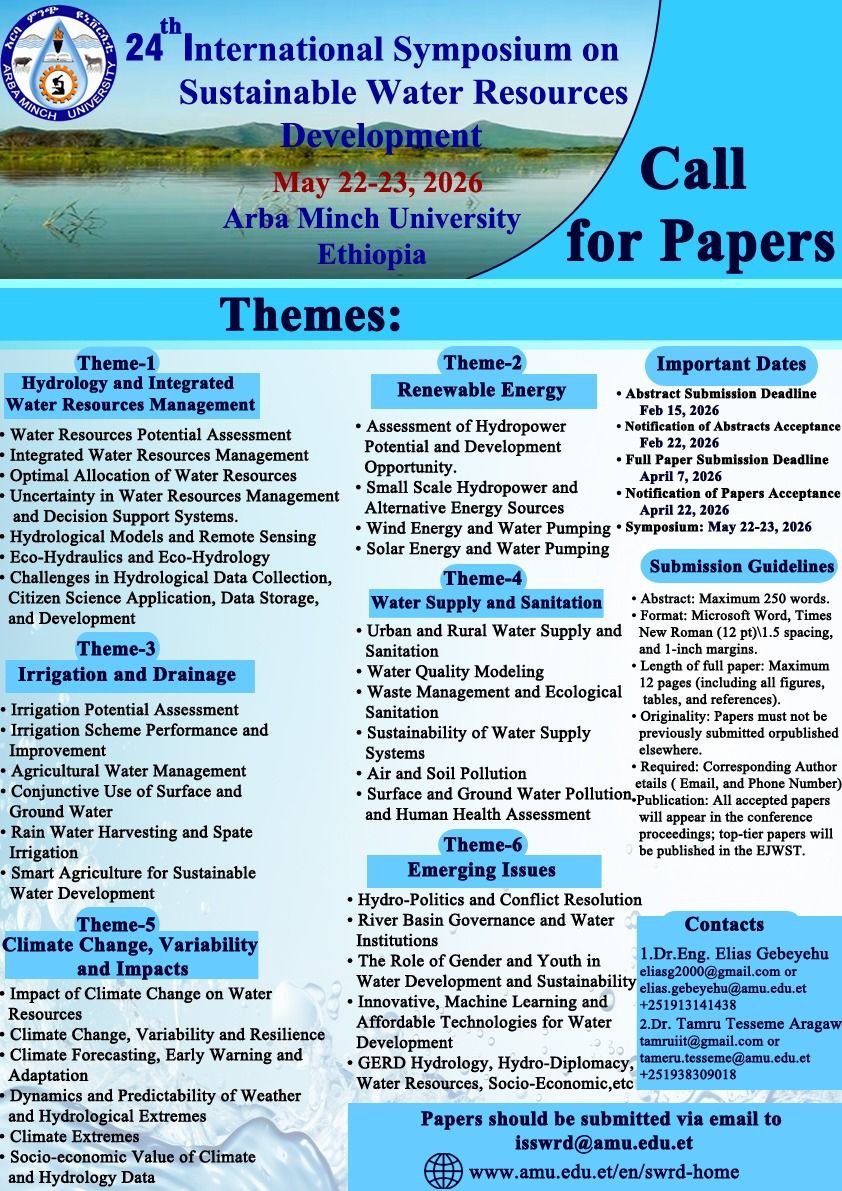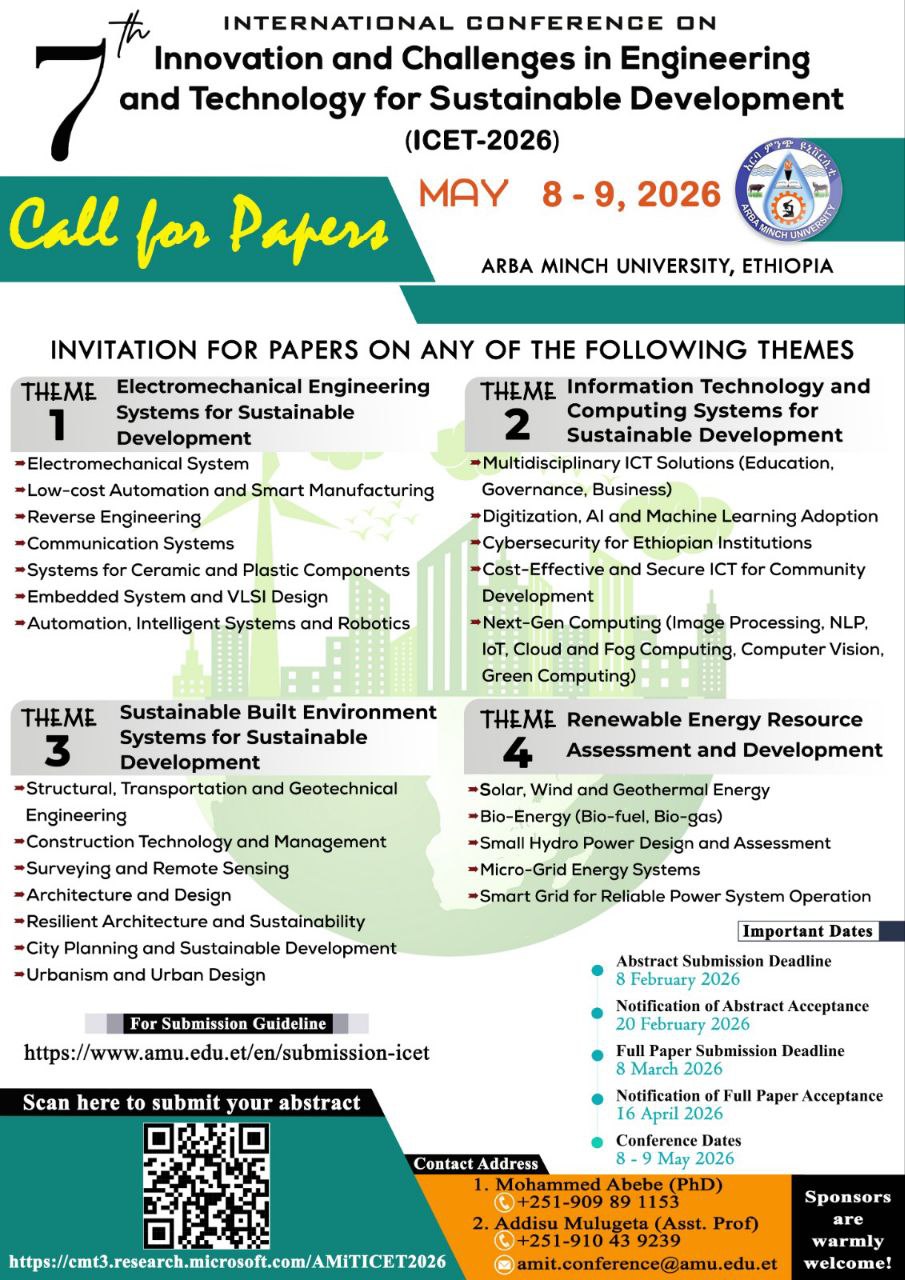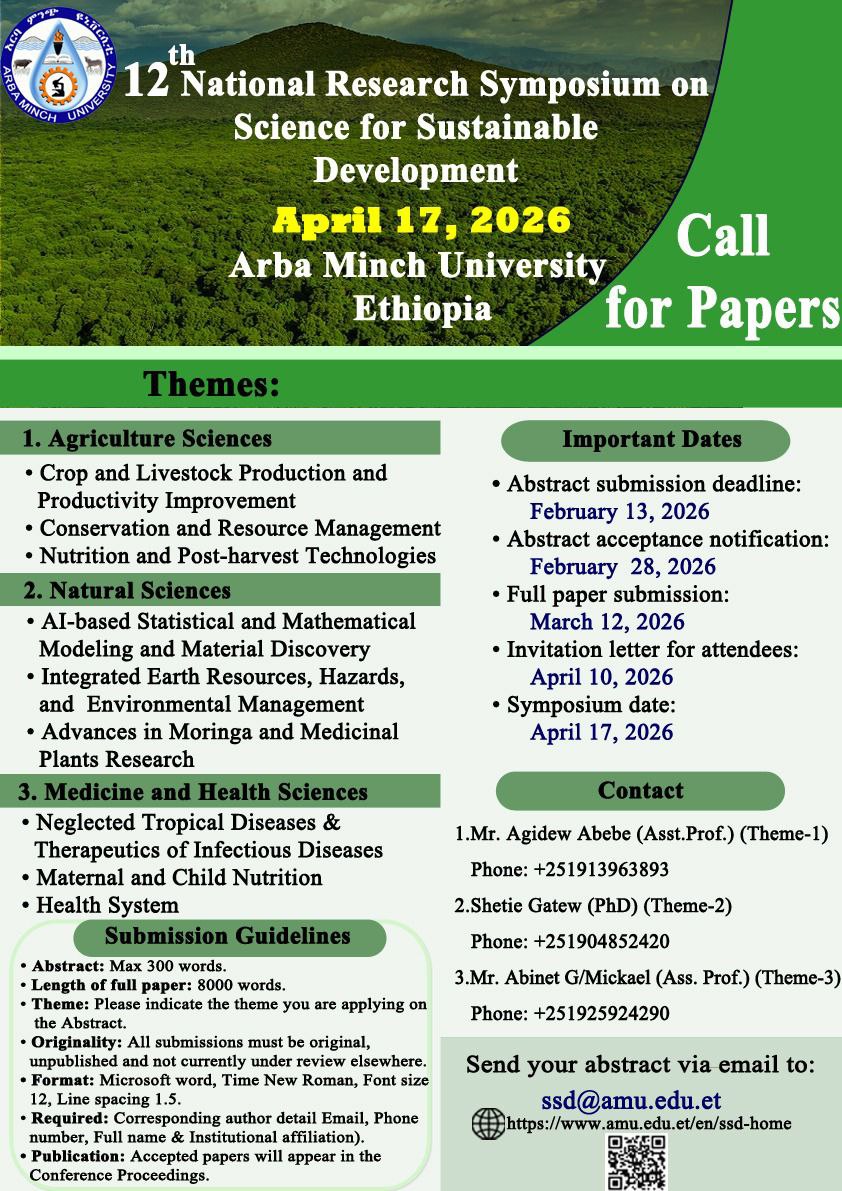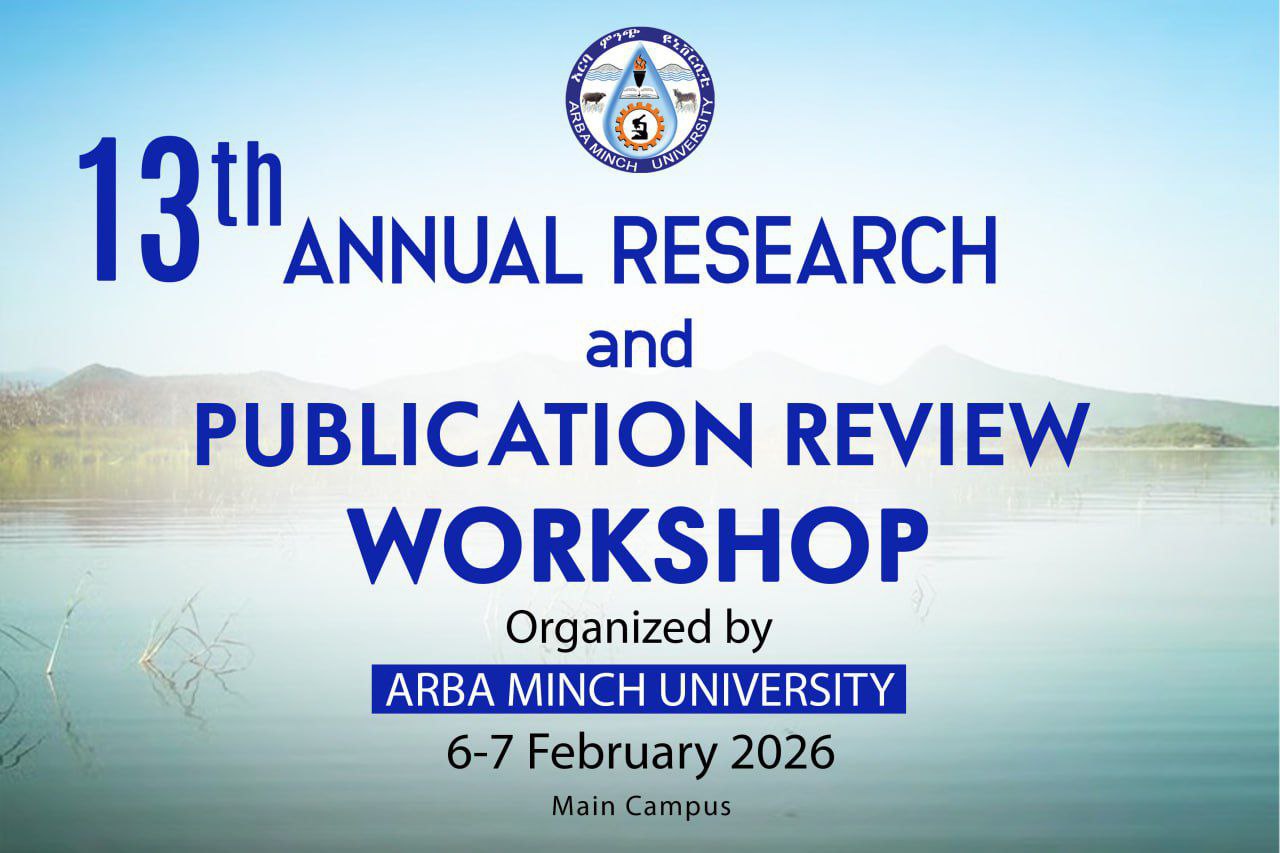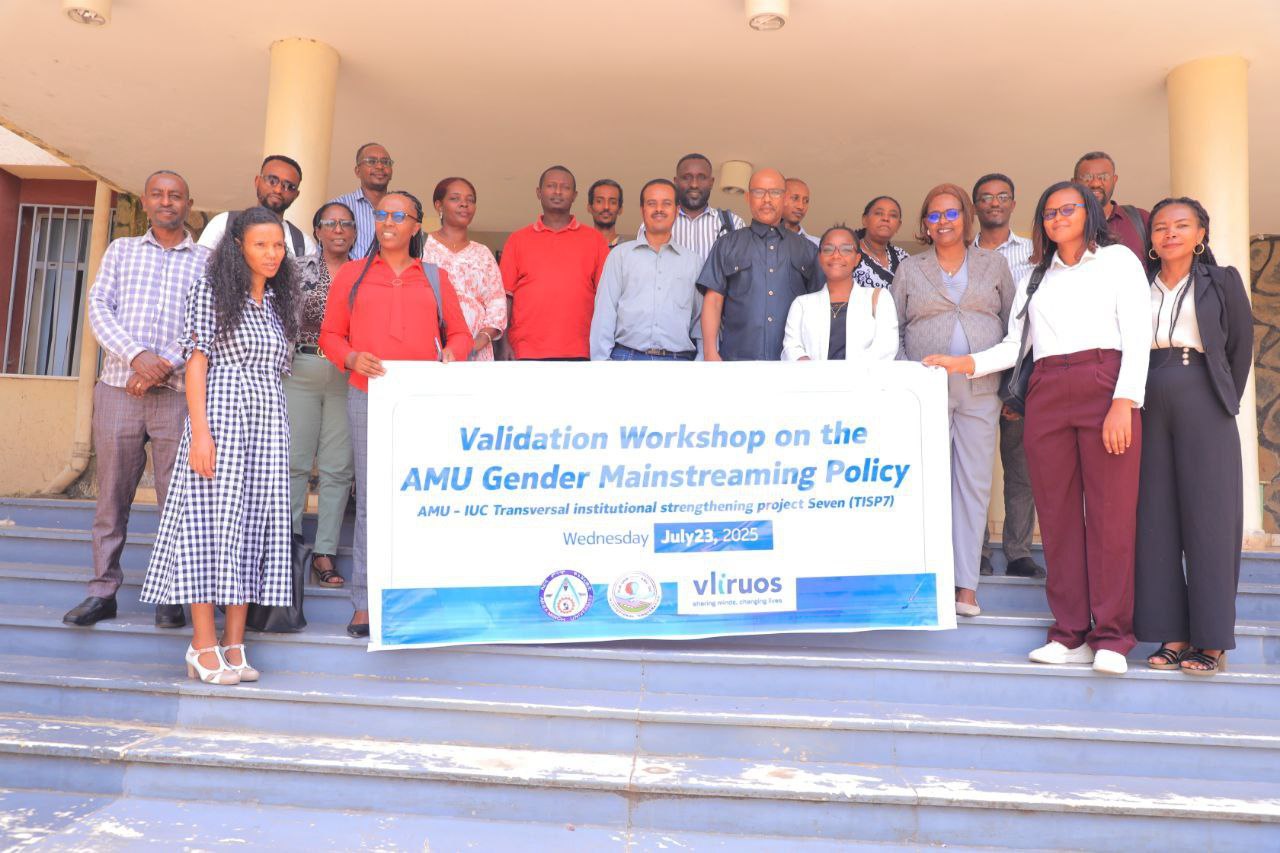Arba Minch University is taking a significant step forward in its commitment to equity by advancing its draft Gender Mainstreaming Policy. In a collaborative workshop held on July 23, 2025, university leaders, faculty, and partners came together to review the document, provide critical feedback, and chart a course for its finalization.Click here to see more photos
The event, supported by the IUC-TISP7 initiative, showcased a unified vision for building a safer, more inclusive, and equitable campus community.
Setting a powerful tone, Dr. Teklu Wogayehu, Vice President for Research and Cooperation, and Local Coordinator of the AMU-IUC Project, articulated the university’s high-level commitment to gender equality, female participation, and combating gender-based violence. He emphasized that promoting gender equity is "both a legal responsibility and a moral duty." Looking to the future, Dr. Teklu declared, "This policy will redefine our campus culture, ensuring safety, equity, and opportunity for all."
Dr. Fassil Eshetu, AMU-IUC Project Manager, placed the policy within the context of the university's broader international collaboration. He highlighted the IUC program's remarkable successes, including "19 completed PhDs, 15 ongoing doctoral projects, and strengthened partnerships with Belgian universities." He noted that fostering gender inclusivity is essential to reinforcing AMU’s journey toward academic excellence.
Dr. Genaye Tsegaye, TISP7 Coordinator, highlighted the progress made in gender inclusivity at AMU. A key initiative is the development of the Gender Mainstreaming Policy Document for Arba Minch University. Additionally, the project aims to enhance women's work-life balance by providing daycare services on two campuses. It also focuses on supporting PhD candidates throughout their academic journeys. Dr. Genaye emphasized that the TISP7 project will continue to support and follow up the integration of gender components into the research and outreach activities undertaken within the AMU-IUC project.
Ms. Senait Sahle, Executive of the Women and Social Affairs Inclusive Implementation Executive Office, elaborated on the global barriers women face in academia and beyond but emphasized AMU’s proactive measures to counteract gender biases. She highlighted the IUC projects’s inclusion of women participants as a testament to AMU’s gender-sensitive approach and called for expanded awareness campaigns and structural reforms. The university's initiatives demonstrate its commitment to reducing gender imbalance and fostering a more inclusive environment, she remarked.
Hagerework Desalegn presented the draft policy, emphasizing the necessity of gender equality for institutional transformation. The policy aims to address systematic barriers faced by women in education and leadership due to cultural norms and institutional practices. It aligns with Sustainable Development Goals (SDGs) and Ethiopia’s national frameworks, promoting a safe and inclusive environment for the entire university community.
The workshop was instrumental in gathering feedback to strengthen the draft. Dedicated reviewers forwarded major and minor comments, with participants emphasizing the need for: A robust financial plan for implementation, inclusion of intersectional issues and baseline research to measure impact and effectiveness.
This valuable feedback will be integrated into the policy before the final draft is submitted to the University Senate for approval. With this collaborative approach, AMU is ensuring its Gender Mainstreaming Policy is not just a document, but a powerful and effective foundation for lasting change.
For more Information Follow us on:-
Website - https://www.amu.edu.et/
Telegram - https://t.me/arbaminch_university
Facebook - https://www.facebook.com/ArbaMinchUniversityccd/
YouTube - https://www.youtube.com/channel/UCOO_nclhMo8M3r74OyPBlVA
Public and International Relations Executive


